
Stara Zagora: The Timeless Charm of Thrace
Nestled in the heart of Bulgaria, Stara Zagora is a city rich with history and natural beauty. Known as one of the oldest settlements in Europe, it boasts a heritage that dates back over 8,000 years. Walking through the city, you’ll encounter ancient ruins, vibrant parks, and a welcoming atmosphere that speaks of its storied past. Stara Zagora’s historical significance is evident in its numerous archaeological sites. The Regional History Museum houses remarkable artifacts from the Thracian, Roman, and Byzantine periods, offering visitors a glimpse into the city’s diverse cultural tapestry. The Roman Forum and the ancient streets of Augusta Traiana are must-see landmarks that bring history to life. Beyond its historical allure, Stara Zagora is a green oasis. The city is dotted with beautiful parks such as Ayazmoto Park, where you can enjoy a leisurely stroll, picnic, or explore the local flora and fauna. The Mineral Baths of Stara Zagora provide a unique experience with their healing properties, perfect for relaxation after a day of sightseeing. The local cuisine is another highlight, featuring traditional Bulgarian dishes that will tantalize your taste buds. Don't miss the opportunity to try Shopska salad, banitsa, and the locally produced wines, which are a testament to the region’s fertile lands and winemaking traditions. Stara Zagora is not just a city trapped in time; it is a vibrant place where the past and present coexist harmoniously. Its friendly locals, rich history, and beautiful landscapes make it an unforgettable destination for any traveler.
Local tips in Stara Zagora
- Visit the Regional History Museum to understand the city's rich past.
- Spend an afternoon in Ayazmoto Park for a relaxing outdoor experience.
- Check out the Roman Forum and ancient streets of Augusta Traiana.
- Try the local wines; Stara Zagora is known for its winemaking traditions.
- Enjoy a meal at a local restaurant to taste traditional Bulgarian cuisine.
- Don’t forget to visit the Mineral Baths for a rejuvenating experience.
Stara Zagora: The Timeless Charm of Thrace
Nestled in the heart of Bulgaria, Stara Zagora is a city rich with history and natural beauty. Known as one of the oldest settlements in Europe, it boasts a heritage that dates back over 8,000 years. Walking through the city, you’ll encounter ancient ruins, vibrant parks, and a welcoming atmosphere that speaks of its storied past. Stara Zagora’s historical significance is evident in its numerous archaeological sites. The Regional History Museum houses remarkable artifacts from the Thracian, Roman, and Byzantine periods, offering visitors a glimpse into the city’s diverse cultural tapestry. The Roman Forum and the ancient streets of Augusta Traiana are must-see landmarks that bring history to life. Beyond its historical allure, Stara Zagora is a green oasis. The city is dotted with beautiful parks such as Ayazmoto Park, where you can enjoy a leisurely stroll, picnic, or explore the local flora and fauna. The Mineral Baths of Stara Zagora provide a unique experience with their healing properties, perfect for relaxation after a day of sightseeing. The local cuisine is another highlight, featuring traditional Bulgarian dishes that will tantalize your taste buds. Don't miss the opportunity to try Shopska salad, banitsa, and the locally produced wines, which are a testament to the region’s fertile lands and winemaking traditions. Stara Zagora is not just a city trapped in time; it is a vibrant place where the past and present coexist harmoniously. Its friendly locals, rich history, and beautiful landscapes make it an unforgettable destination for any traveler.
When is the best time to go to Stara Zagora?
Iconic landmarks you can’t miss
Park “Ayazmo“
Discover the natural beauty and tranquility of Park Ayazmo in Stara Zagora, a perfect escape for nature lovers and families.
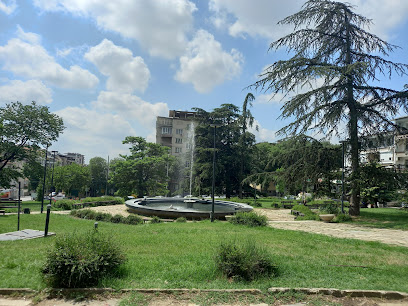
“Bedechka” Park
Explore Bedechka Park, Stara Zagora's lush green haven, perfect for relaxation, recreation, and family fun amidst nature's beauty.
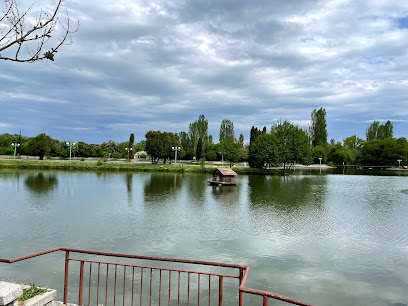
Stara Zagora Zoo
Discover diverse wildlife in a scenic park setting at Stara Zagora Zoo, a family-friendly attraction with animals from around the globe.
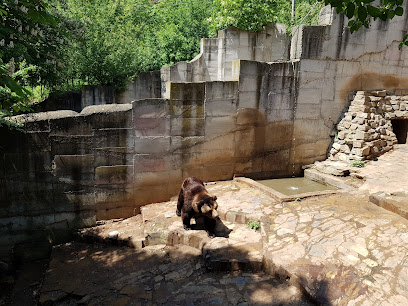
Artileriyski Park
Discover the beauty and tranquility of Artileriyski Park in Stara Zagora, a perfect blend of nature and community activity.
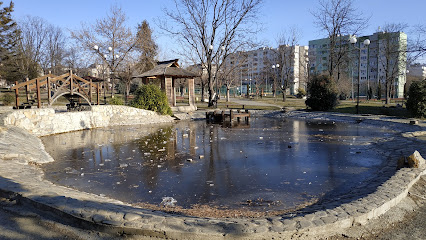
Shtastlivetsa
Experience the finest culinary offerings at Shtastlivetsa, where traditional Bulgarian flavors meet modern gastronomy in a stylish setting.
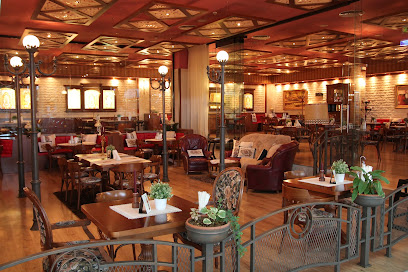
State Opera Stara Zagora
Discover the enchanting State Opera Stara Zagora, where history meets artistic brilliance in a stunning architectural setting.
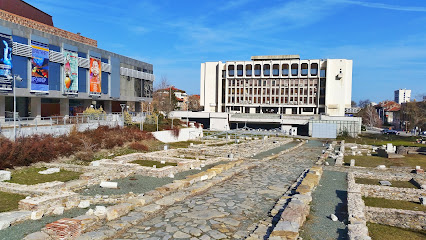
Samara Flag Monument
Discover the Samara Flag Monument in Stara Zagora, a stunning memorial park celebrating bravery and history amidst beautiful landscapes.
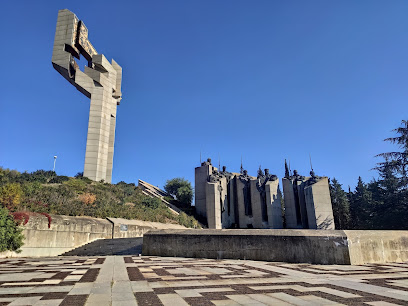
Drums
Experience the vibrant nightlife of Stara Zagora at Drums, where great drinks and live music create an unforgettable atmosphere.
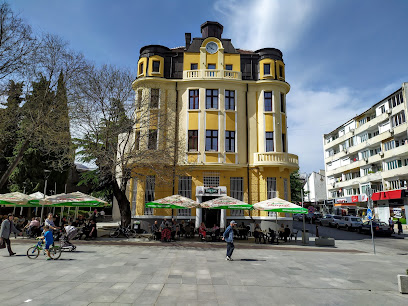
Antique Forum
Explore the remarkably preserved Roman Forum of Augusta Trayana in Stara Zagora, where history comes alive through ancient ruins and cultural performances.
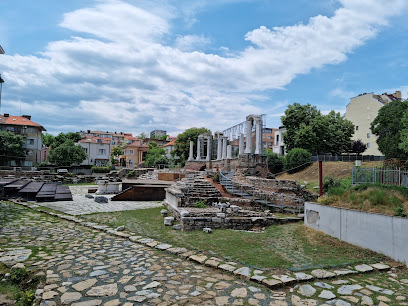
Zagorka Lake
Escape to Zagorka Lake in Stara Zagora: A scenic park with walking trails, recreational activities, and a tranquil atmosphere for all ages.
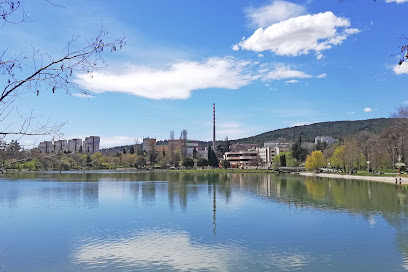
Regional Museum of History Stara Zagora
Explore Bulgaria's heritage at the Regional Museum of History Stara Zagora, an engaging journey through the ages with fascinating artifacts and rich narratives.
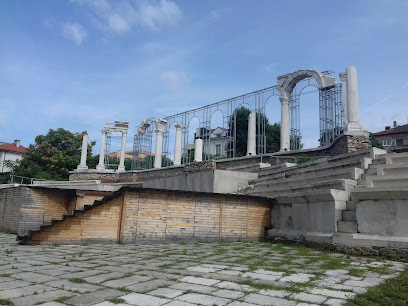
City Center - Stara Zagora
Explore Stara Zagora's City Center: A shopping haven with diverse dining and entertaining options, perfect for tourists seeking local culture.
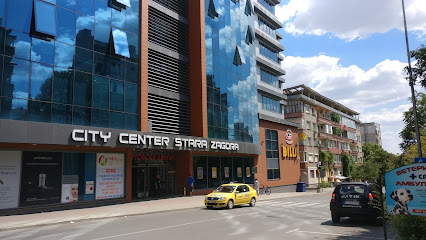
Buhchevata House
Experience authentic Bulgarian cuisine and warm hospitality at Buhchevata House in the heart of Stara Zagora, a must-visit for food lovers.
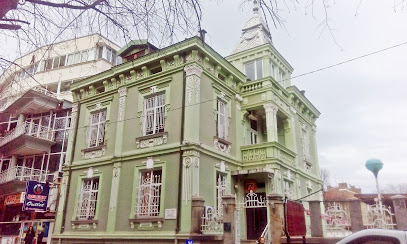
Tifany
Experience traditional Bulgarian cuisine with a modern twist at Tifany Restaurant, a Stara Zagora culinary landmark.
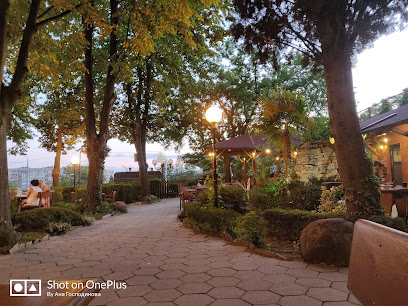
Beer Kolobars Bar
Discover the finest craft beers in Stara Zagora at Beer Kolobars Bar, where quality brews and a vibrant atmosphere await every visitor.
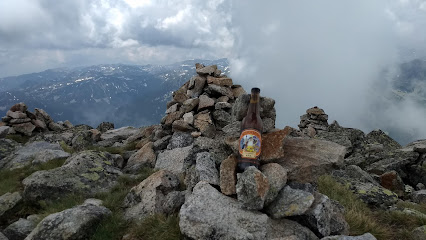
Unmissable attractions to see
Ethno village Etar
Explore the heart of Bulgarian culture at Ethno Village Etar in Gabrovo, where tradition meets stunning natural beauty.
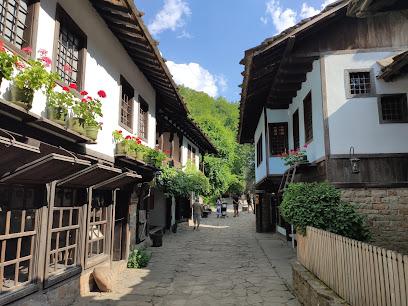
Park “Ayazmo“
Explore the tranquil beauty of Park 'Ayazmo' in Stara Zagora, a serene escape filled with lush greenery and recreational activities for all ages.
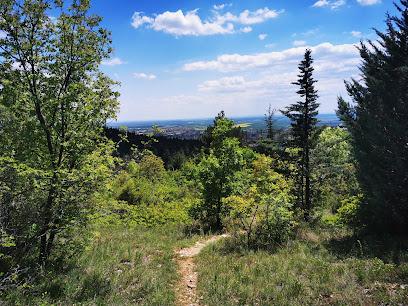
“Bedechka” Park
Explore the natural beauty of 'Bedechka' Park in Stara Zagora, Bulgaria, a perfect retreat for relaxation, recreation, and family fun amidst lush landscapes.
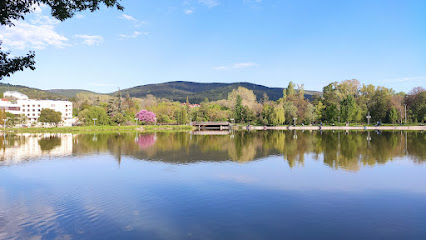
Damascena Ethnographic Complex
Experience Bulgaria's fragrant heritage: Explore rose oil traditions, culture, and nature at the Damascena Ethnographic Complex in the heart of the Rose Valley.
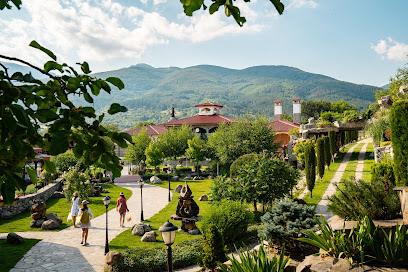
Shipka Memorial Church
Explore the breathtaking Shipka Memorial Church, a stunning symbol of Bulgarian history and Russian Orthodox architecture nestled in the scenic Shipka region.
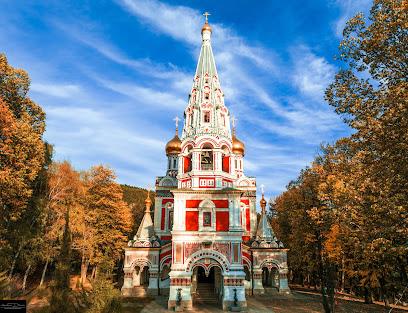
Artileriyski Park
Experience the lush greenery and tranquil ambiance of Artileriyski Park, a serene oasis in the heart of Stara Zagora, perfect for relaxation and recreation.
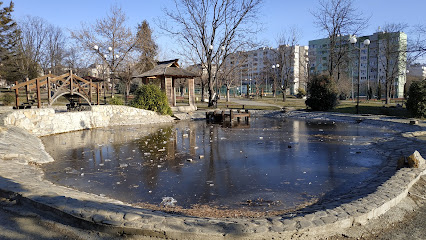
Museum of the Rose
Discover the cultural significance of roses at the enchanting Museum of the Rose in Kazanluk, Bulgaria, the heart of Bulgaria's rose-growing tradition.
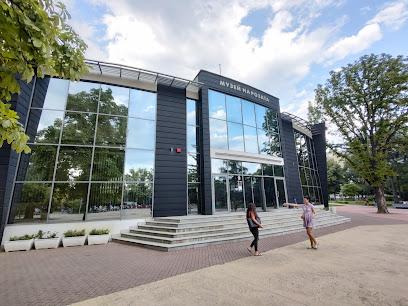
Thracian Tomb of Kazanlak
Explore a UNESCO World Heritage Site: Discover vibrant frescoes in a remarkably preserved Thracian tomb dating back to the 4th century BC.
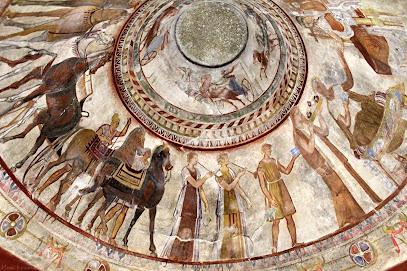
Tomb of Seuthes III
Discover the ancient mysteries of the Tomb of Seuthes III, a UNESCO World Heritage site in Bulgaria, showcasing Thracian art and architecture.
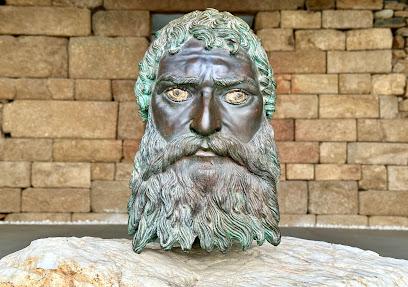
Samara Flag Monument
Explore the Samara Flag Monument in Stara Zagora, a serene memorial park dedicated to the courage of Bulgaria's defenders amidst beautiful landscapes.
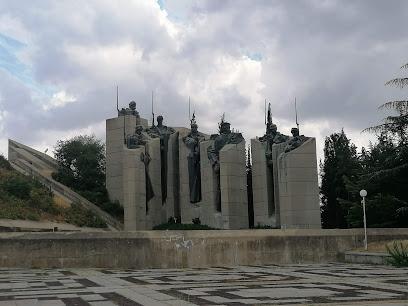
Antique Forum
Explore the Antique Forum in Stara Zagora, a remarkable historical museum showcasing Bulgaria's ancient heritage through fascinating artifacts and ruins.
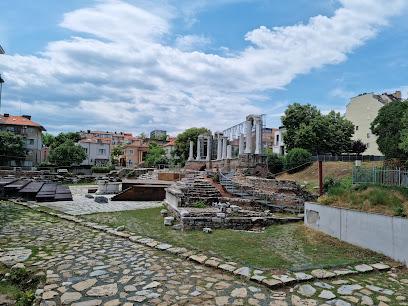
Фонтан „Жабките”
Escape to tranquility at Stara Zagora's charming Frog Fountain, a peaceful park oasis with playful water features and lush gardens.
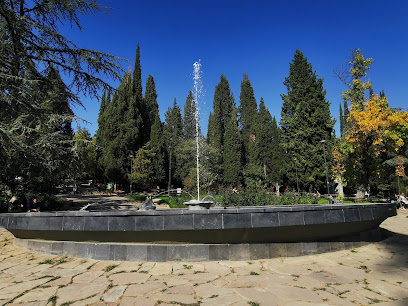
Regional Museum Of History Stara Zagora
Explore the cultural treasures of Stara Zagora at the Regional Museum of History, where ancient stories come to life through captivating exhibits.
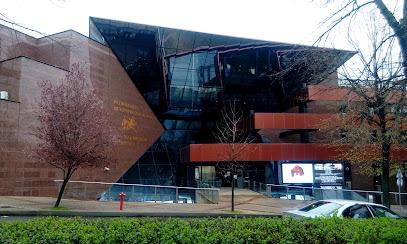
Zagorka Lake
Escape to Zagorka Lake in Stara Zagora: A scenic park offering tranquility, recreation, and natural beauty for all visitors.
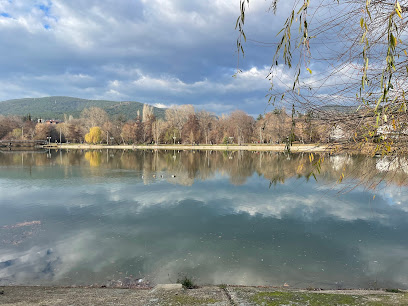
Historical Museum “Iskra”
Uncover the rich tapestry of Bulgarian history at the Historical Museum 'Iskra' in Kazanluk, a captivating cultural gem for all travelers.
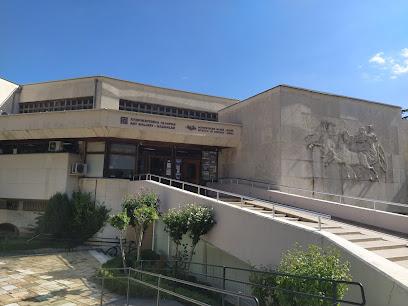
Essential places to dine
Sandvichaka
Experience the best of Bulgarian fast food at Sandvichaka in Stara Zagora - where delicious sandwiches meet local charm.
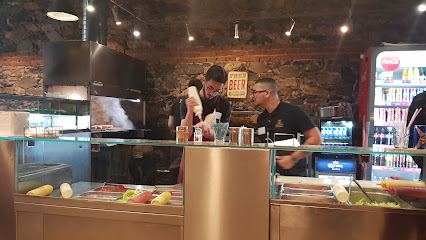
Restaurant & Pizza Tsarya 65
Experience the perfect blend of Bulgarian flavors and Italian pizza at Restaurant & Pizza Tsarya 65 in Stara Zagora.
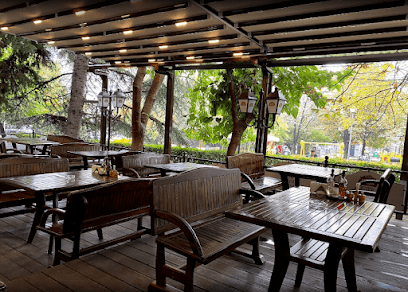
Restaurant Uniqato
Experience the best of Italian cuisine at Restaurant Uniqato – where authentic flavors meet warm hospitality in Stara Zagora.
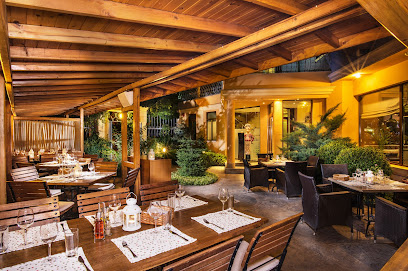
Venecia
Discover Venecia in Stara Zagora - where authentic Italian pizza meets warm hospitality in a charming setting.
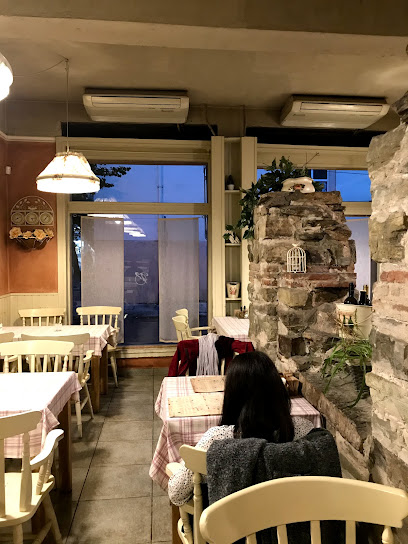
Golden Serbian Grill Pri Vlado
Experience authentic Serbian cuisine in Stara Zagora at Golden Serbian Grill Pri Vlado - where tradition meets flavor.
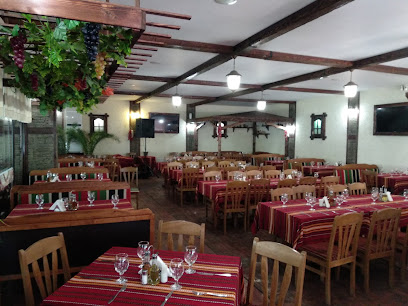
Shtastlivetsa
Discover the rich flavors of Bulgaria at Shtastlivetsa – where tradition meets modern culinary artistry in Stara Zagora.
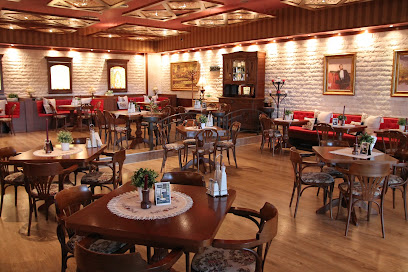
Golden Serbian Grill Pri Vlado - 3
Experience authentic Serbian cuisine at Golden Serbian Grill Pri Vlado in Stara Zagora - a culinary journey you won't forget.
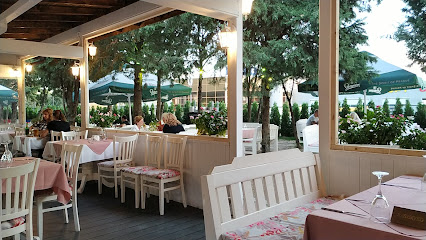
ANTONY
Savor authentic Italian cuisine at Antony in Stara Zagora – where every dish tells a story!
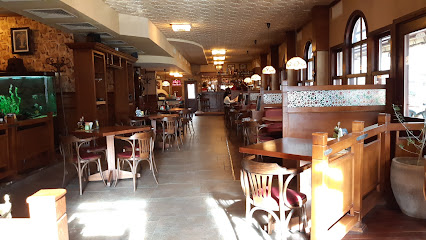
Механа „Каручката“
Discover the heart of Bulgarian cuisine at Механа „Каручката“, where tradition meets flavor in a cozy atmosphere.
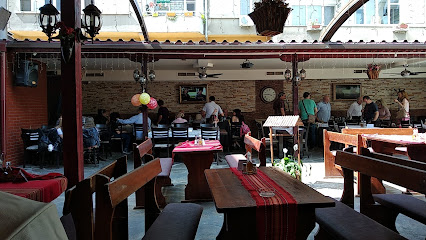
Chevermeto
Discover Chevermeto in Stara Zagora: where authentic Bulgarian barbecue meets warm hospitality in a charming setting.
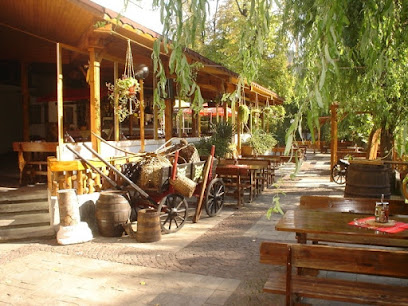
BISTRO LINDO
Experience the flavors of Bulgaria at Bistro Lindo in Stara Zagora – where culinary excellence meets warm hospitality.
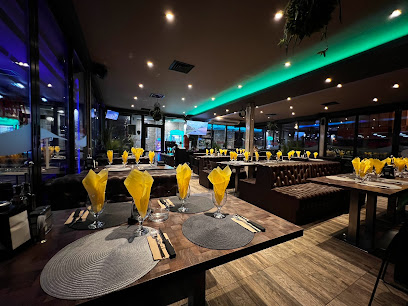
Beer House
Experience authentic Bulgarian cuisine at Beer House in Stara Zagora – where great food meets vibrant atmosphere.
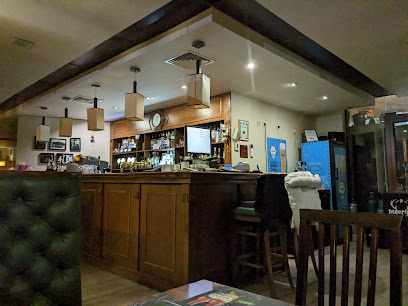
Pizza Pub by PizzAmerica
Discover authentic Italian flavors at Pizza Pub by PizzAmerica in Stara Zagora - where every slice tells a story.
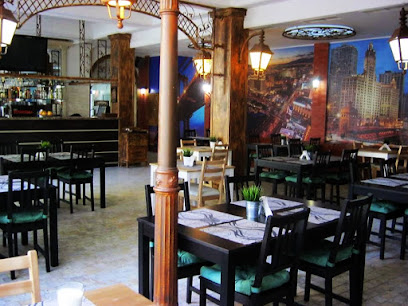
At The Admiral
Experience authentic Bulgarian cuisine blended with modern flavors at At The Admiral in Stara Zagora.
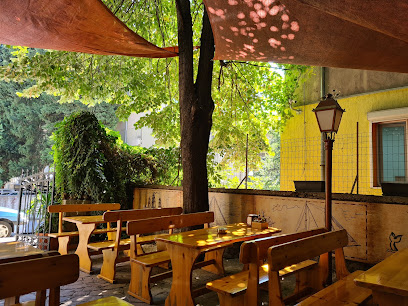
Ресторант-градина LEON
Discover culinary bliss at Ресторант-градина LEON in Stara Zagora - where family-friendly dining meets delightful outdoor ambiance.

Markets, malls and hidden boutiques
Mall Galleria Stara Zagora
Explore Mall Galleria Stara Zagora: A vibrant shopping hub offering a unique blend of brands, dining, and entertainment in the heart of Bulgaria.
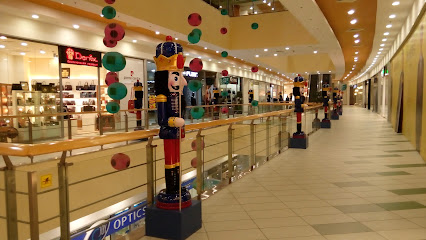
Department Store
Experience the bustling atmosphere of Stara Zagora's Department Store, a shopping haven featuring local crafts, trendy fashion, and delightful eateries.
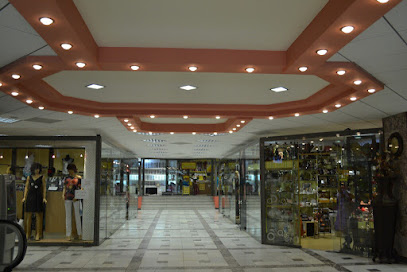
Магазин Мания Стара Загора
Experience the best of local fashion at Магазин Мания Стара Загора, a trendy clothing store in the heart of Bulgaria's historic city.
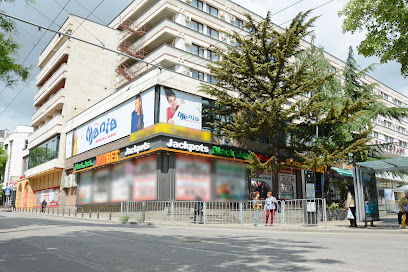
The Dubai Perfumery Stara Zagora
Discover the luxurious scents of The Dubai Perfumery in Stara Zagora - a paradise for fragrance lovers and beauty enthusiasts alike.
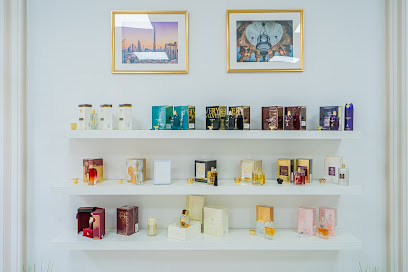
ОТТО boutique
Experience luxury and wellness at ОТТО Boutique, Stara Zagora's premier health and beauty shop, offering personalized services and premium products.
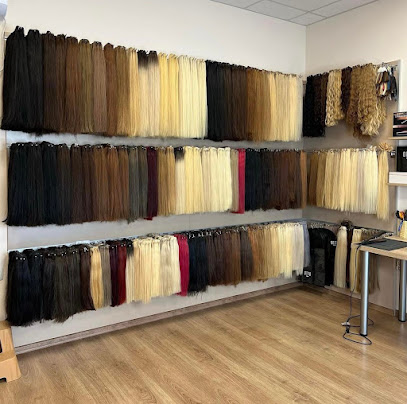
Магазин Европа
Explore Магазин Европа in Stara Zagora for an unparalleled shopping experience featuring clothing, electronics, and unique finds for all ages.
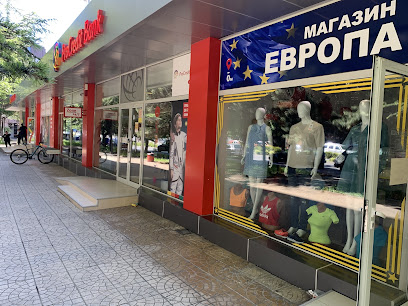
Souvenirs And Roses From Bulgaria
Explore a unique souvenir shop in Stara Zagora, featuring traditional crafts and authentic Bulgarian rose products for a memorable shopping experience.
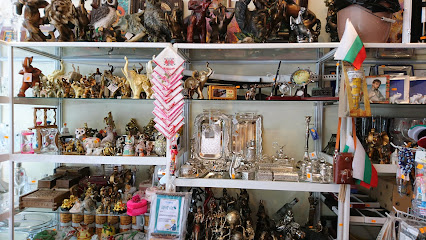
Gift Shop
Explore a delightful gift shop in Stara Zagora, offering a variety of unique souvenirs and local crafts to cherish your visit.
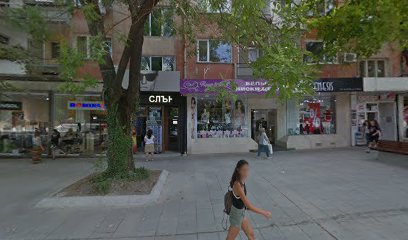
Art Magazin
Discover the artistic charm of Stara Zagora at Art Magazin, a treasure trove of unique gifts and local artistry in the heart of the city.
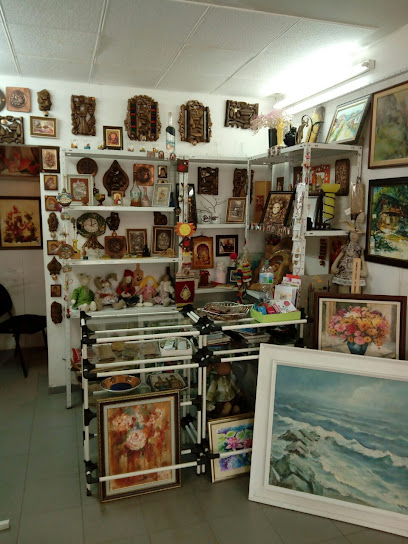
Магазин за чанти и аксесоари от естествена кожа
Explore Classic O Bags in Stara Zagora for exquisite leather handbags and accessories that blend style and craftsmanship seamlessly.
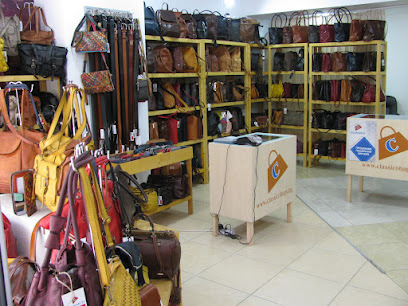
Мехран Еоод
Explore the heart of Stara Zagora at Мехран Еоод, your go-to gift shop for unique souvenirs and local craftsmanship.
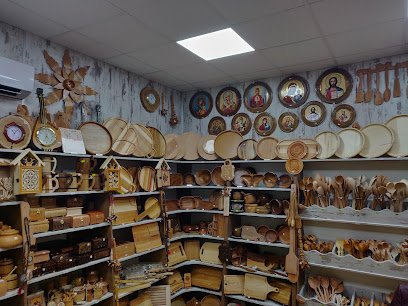
Работилничката на Finch
Explore the artistic soul of Stara Zagora at Работилничката на Finch, a gift shop filled with unique handcrafted treasures.
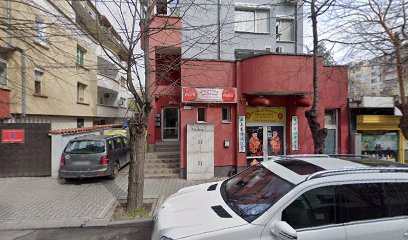
BigStore.bg
Explore BigStore.bg for an unforgettable shopping adventure in Stara Zagora, featuring local crafts, unique souvenirs, and a friendly atmosphere.
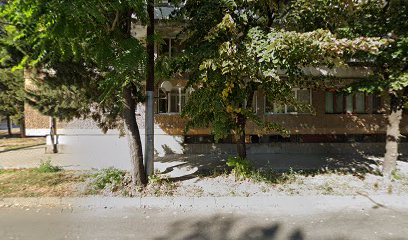
Магазинче
Explore the heart of Stara Zagora at Магазинче, a local store offering authentic Bulgarian products and a glimpse into the vibrant culture.
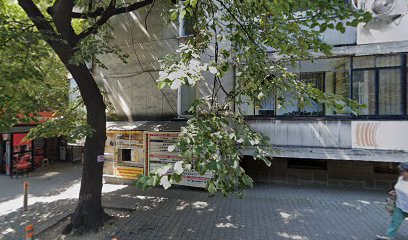
Aioma Epoxy Resin
Explore Aioma Epoxy Resin in Stara Zagora for unique handmade gifts and local artistry that capture the essence of Bulgarian craftsmanship.
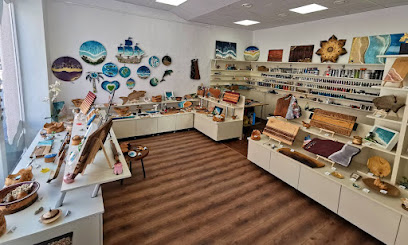
Essential bars & hidden hideouts
Pri Kmeta
Discover the heart of Bulgarian cuisine at Pri Kmeta, a charming pub in Stara Zagora offering authentic dishes and warm hospitality.
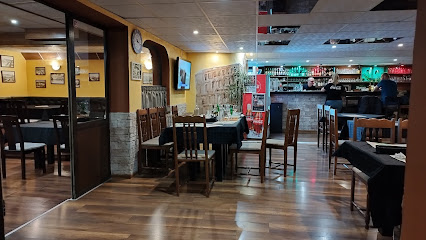
Drums
Experience the vibrant nightlife at Drums, Stara Zagora's top bar for eclectic drinks, live music, and a welcoming atmosphere for locals and tourists alike.
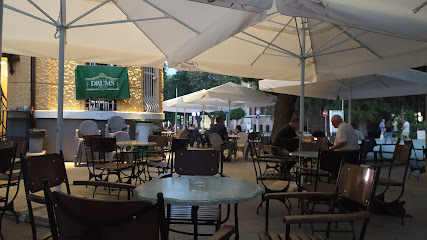
BISTRO LINDO
Experience the taste of Bulgaria at Bistro Lindo in Stara Zagora, where delicious cuisine meets a warm, inviting atmosphere.
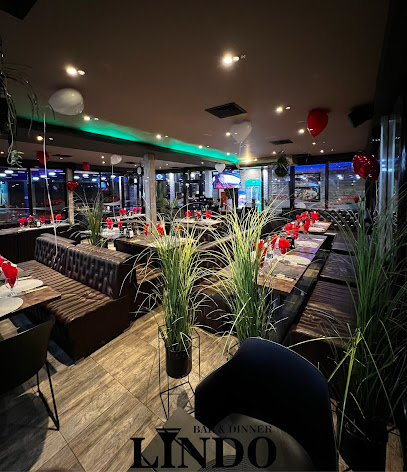
Beer House
Discover the authentic taste of Bulgaria at Beer House in Stara Zagora, where tradition meets flavor in a lively atmosphere.
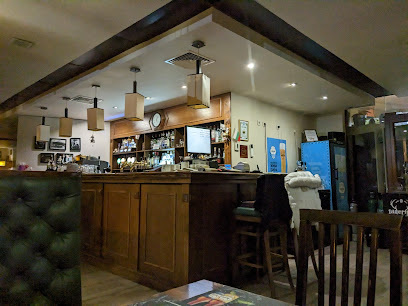
042 bar and dinner
Discover the culinary gems of Stara Zagora at 042 Bar and Dinner, where taste meets tradition in a lively dining atmosphere.
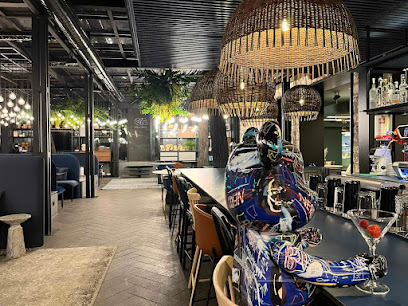
Beer Kolobars Bar
Experience the best of craft beer at Beer Kolobars Bar, a lively destination in Stara Zagora perfect for socializing and unwinding with friends.
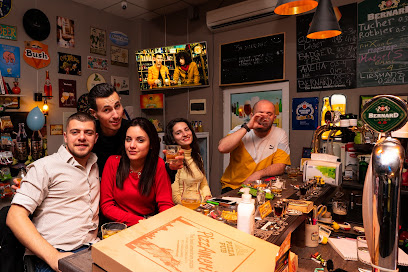
Belle Vue
Discover Belle Vue in Stara Zagora: A lively bar offering a diverse drink menu and a cozy atmosphere for unforgettable evenings.
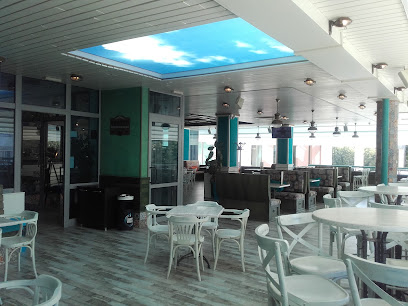
Nota Bar & Dinner
Discover the vibrant culinary scene at Nota Bar & Dinner, where Bulgarian traditions meet modern flavors in a cozy setting.
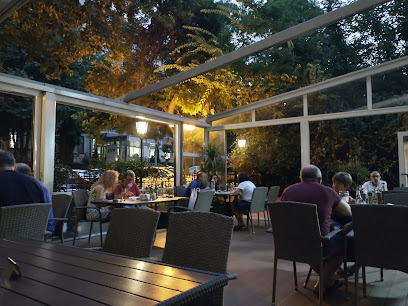
THE HOUSE пиано бар
Experience the enchanting atmosphere of THE HOUSE Piano Bar in Stara Zagora, where live music and delightful cocktails create unforgettable nights.
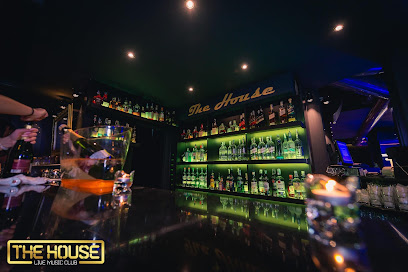
SELECT Bar
Experience the vibrant nightlife of Stara Zagora at SELECT Bar, where great drinks and a lively atmosphere await you.
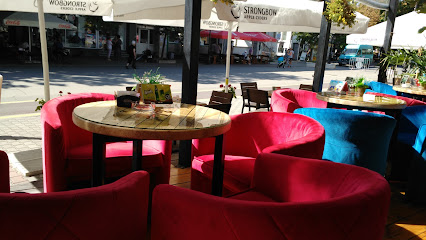
CAVALLI CLUB STARA ZAGORA
Discover the vibrant nightlife at Cavalli Club Stara Zagora, where unforgettable nights and great company await in Bulgaria's lively party scene.
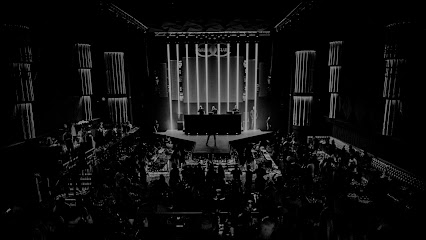
Wine and Bar Shop Spodelena
Experience the essence of Bulgarian culture at Wine and Bar Shop Spodelena, where exquisite wines and a cozy atmosphere await.
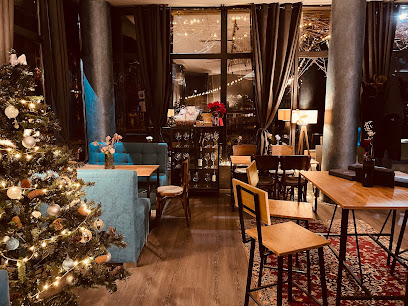
The Bar
Experience the vibrant social scene of Stara Zagora at The Bar, where delightful drinks and a cozy atmosphere await every visitor.
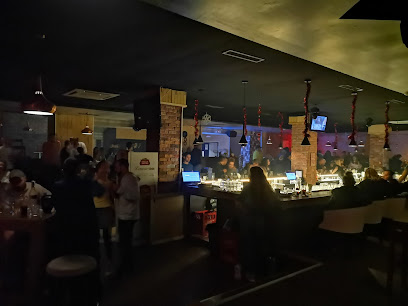
IL Mondo
Discover the essence of Stara Zagora's nightlife at IL Mondo – where music, dance, and unforgettable memories await in a vibrant atmosphere.
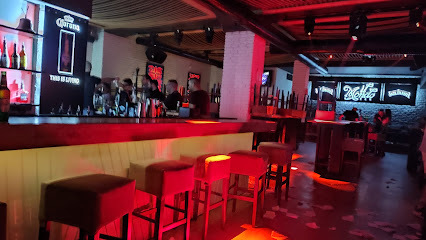
Lucifer - bar & shisha
Experience vibrant nightlife at Lucifer bar & shisha in Stara Zagora, featuring a diverse drink menu and a cozy atmosphere for an unforgettable evening.
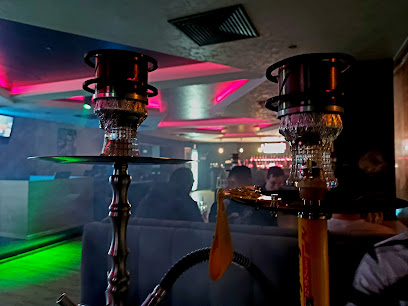
Local Phrases
-
- HelloЗдравей
[Zdravey] - GoodbyeДовиждане
[Dovizhdane] - YesДа
[Da] - NoНе
[Ne] - Please/You're welcomeМоля
[Molya] - Thank youБлагодаря
[Blagodarya] - Excuse me/SorryИзвинявай
[Izvinyavay] - How are you?Как си?
[Kak si?] - Fine. And you?Добре. А ти?
[Dobre. A ti?] - Do you speak English?Говориш ли английски?
[Govorish li angliyski?] - I don't understandНе разбирам
[Ne razbiram]
- HelloЗдравей
-
- I'd like to see the menu, pleaseБих искал да видя менюто, моля
[Bih iskal da vida menyuto, molya] - I don't eat meatНе ям месо
[Ne yam meso] - Cheers!На здраве!
[Na zdrave!] - I would like to pay, pleaseБих искал да платя, моля
[Bih iskal da platya, molya]
- I'd like to see the menu, pleaseБих искал да видя менюто, моля
-
- Help!Помощ!
[Pomosht!] - Go away!Изчезвай!
[Izchezvay!] - Call the Police!Обадете се на полицията!
[Obadete se na politsiyata!] - Call a doctor!Обадете се на лекар!
[Obadete se na lekar!] - I'm lostЗагубих се
[Zagubih se] - I'm illБолен съм
[Bolen sam]
- Help!Помощ!
-
- I'd like to buy...Бих искал да купя...
[Bih iskal da kupya...] - I'm just lookingСамо гледам
[Samo gledam] - How much is it?Колко струва?
[Kolko struva?] - That's too expensiveТова е твърде скъпо
[Tova e tvurde skupo] - Can you lower the price?Можете ли да намалите цената?
[Mozhete li da namalite tsenata?]
- I'd like to buy...Бих искал да купя...
-
- What time is it?Колко е часът?
[Kolko e chasat?] - It's one o'clockЕдин час е
[Edin chas e] - Half past (10)Половин час след (10)
[Polovin chas sled (10)] - MorningСутрин
[Sutrin] - AfternoonСледобед
[Sledobed] - EveningВечер
[Vecher] - YesterdayВчера
[Vchera] - TodayДнес
[Dnes] - TomorrowУтре
[Utre] - 1Едно
[Edno] - 2Две
[Dve] - 3Три
[Tri] - 4Четири
[Chetiri] - 5Пет
[Pet] - 6Шест
[Shest] - 7Седем
[Sedem] - 8Осем
[Osem] - 9Девет
[Devet] - 10Десет
[Deset]
- What time is it?Колко е часът?
-
- Where's a/the...?Къде е...
[Kade e...] - What's the address?Какъв е адресът?
[Kakav e adresat?] - Can you show me (on the map)?Можете ли да ми покажете (на картата)?
[Mozhete li da mi pokazhete (na kartata)?] - When's the next (bus)?Кога е следващият (автобус)?
[Koga e sledvashtiyat (avtobus)?] - A ticket (to ....)Билет (до ....)
[Bilet (do ....)]
- Where's a/the...?Къде е...
History of Stara Zagora
-
Stara Zagora's history dates back over 8,000 years, making it one of the oldest settlements in Europe. Originally known as Beroe in ancient Thrace, it became a significant hub for trade and culture due to its strategic location.
-
In the 1st century AD, the Roman Empire established the city as Augusta Traiana. The Romans built impressive structures, including an amphitheater, public baths, and fortified walls, many of which can still be seen today. This period marked a golden era of prosperity and urban development.
-
During the Middle Ages, Stara Zagora was a key fortress town in the Byzantine Empire. It played a crucial role in the defense against invasions and was an important center of Christianity, evidenced by numerous churches and monasteries from this period.
-
Stara Zagora fell under Ottoman control in the late 14th century, during which it was renamed Eski Zağra. The city experienced significant cultural and architectural changes, with the construction of mosques, baths, and marketplaces that reflected Ottoman influences.
-
In 1877-1878, Stara Zagora became a battleground during the Russo-Turkish War, which ultimately led to Bulgarian liberation from Ottoman rule. The Battle of Stara Zagora in 1877 was a pivotal moment, although the city suffered extensive damage and loss of life.
-
Post-liberation, Stara Zagora underwent substantial reconstruction and modernization efforts. The city was rebuilt with wider streets, new public buildings, and green spaces, reflecting European architectural styles. Today, it is a vibrant city known for its cultural heritage and educational institutions.
-
Stara Zagora is celebrated for its rich cultural tapestry. It boasts numerous museums, galleries, and theaters, such as the Regional History Museum and the State Opera. The city's annual cultural events, including the Festival of Opera and Ballet, attract visitors from around the globe.
Stara Zagora Essentials
-
Stara Zagora is located in central Bulgaria and is accessible by various means of transportation. The nearest international airport is Sofia Airport, approximately 230 kilometers away. From Sofia, you can take a bus, train, or rent a car. The bus journey typically takes around 3-4 hours, while the train might take a bit longer but offers a scenic route. There are also direct buses from Plovdiv, which is around 90 kilometers away.
-
Stara Zagora is well-connected with a reliable public transportation system, including buses and taxis. The central bus station provides routes to nearby towns and major cities. Taxis are readily available and relatively inexpensive. If you prefer to explore at your own pace, car rental services are also available. Cycling is another option as the city is quite bike-friendly.
-
The official currency in Bulgaria is the Bulgarian Lev (BGN). Credit and debit cards are widely accepted in hotels, restaurants, and larger shops. However, it's advisable to carry some cash, especially when visiting smaller establishments and markets. ATMs are plentiful throughout the city, and currency exchange offices are available for converting foreign currencies.
-
Stara Zagora is generally a safe city for tourists. However, it's important to take standard precautions. Avoid walking alone at night in poorly lit areas and keep an eye on your personal belongings in crowded places. Although there are no specific high-crime areas targeting tourists, it's always best to stay vigilant and aware of your surroundings.
-
In case of emergency, dial 112 for immediate assistance. The city has several hospitals and medical facilities, including the University Hospital Stara Zagora. Pharmacies are widely available for minor health issues. It's recommended to have travel insurance that covers medical emergencies. The local police are also helpful and can be reached for any security-related concerns.
-
Fashion: Do dress modestly, especially when visiting religious sites. Avoid overly revealing clothing. Religion: Do respect local customs and traditions. Cover your head when entering churches. Public Transport: Do be respectful and give up your seat to elderly passengers. Don't eat or drink on public transport. Greetings: Do greet people with a handshake and maintain eye contact. Eating & Drinking: Do try local delicacies and accept food offerings graciously. Don’t refuse hospitality, as it is considered impolite.
-
To experience Stara Zagora like a local, visit the weekly farmers' market where you can buy fresh produce and traditional Bulgarian goods. Engage with locals, as they are often friendly and willing to share stories about the city’s history and culture. Don't miss visiting the Regional Historical Museum and the ancient Roman Forum. For a unique experience, take a walk in the Ayazmoto Park, a favorite among locals for its scenic beauty and recreational facilities.
Trending Landmark in Stara Zagora
Nearby Cities to Stara Zagora
-
Things To Do in Haskovo
-
Things To Do in Gabrovo
-
Things To Do in Pleven
-
Things To Do in Shumen
-
Things To Do in Burgas
-
Things To Do in Ruse
-
Things To Do in Alexandroupoli
-
Things To Do in Kavala
-
Things To Do in Varna
-
Things To Do in Bucharest
-
Things To Do in Serres
-
Things To Do in Craiova
-
Things To Do in Canakkale
-
Things To Do in Pitesti
-
Things To Do in Thessaloniki












